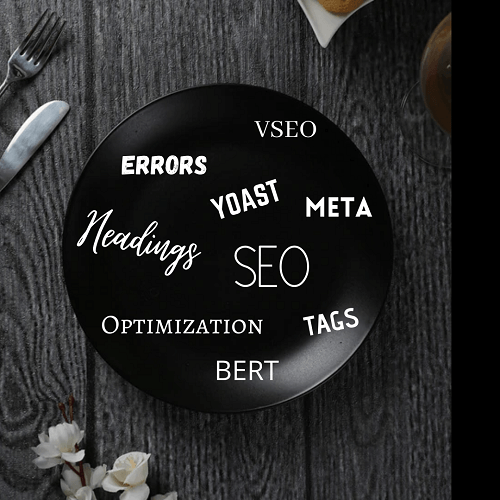E-A-T and SEO : Creating Content using Google Quality Standards
What is EAT? The acronym E-A-T stands for Expertise, Authoritativeness, and Trustworthiness. The concept falls part of Google’s algorithm update in 2018. Basically, the ‘medic update’ is Google’s quality standard guideline that looks into site and page quality. Why is the 2018 update still important? Well, to rank on Google, you need to nurture your site or brand. Some of the things that you will need to look at including the brands’ expertise, authority, and trustworthiness.
Apart from the assumptions we make on what Google wants, we also need to look at the basic google guidelines. Sure, Google will often upgrade its algorithms, but some things will always stay the same. We often look at what the latest SEO trends are and try to implement them as we go. This is an ongoing cycle until you find a winning formula for your brand. Here we will look at E-A-T and how to incorporate each concept into your content tactic. In doing so, you will be working on ranking for the best search terms in your competitive industry.

Google Search Quality Evaluator Guidelines
Before we get into EAT, there are three golden keys to how Google looks at web pages. This is how it tells the difference between high-quality and low-quality Content.
- Beneficial Purpose – The purpose of the page!
- YMYL: Your Money or Your Life – Content that impacts the readers’ health, safety, financial, etc.
- EAT
These three concepts can be found in the Google Search Quality Evaluator Guidelines document. The document details how Google evaluates website quality. The document gives insight and shows the importance to why we SEOs should take these guidelines seriously.
Evaluating E-A-T
As similar as EAT concepts are, they are not identical. Expertise, Authoritativeness, and Trustworthiness are evaluated independently. EAT is not a thing that you can switch on and hope that it works. It takes some understanding to get it right. Let’s take a look at each concept.
E – Expertise
 This is about the creator of the page.
This is about the creator of the page.
Are there any experts on the page, do they have the credentials, can they back this up?
Expertise is evaluated at the content level. You need to be able to create content that is well researched and speaks to the searcher’s intent. Writing detailed and helpful pages is important. Google is essentially observing Content created using the subject matter.
A – Authoritative
 Reputation. This is the word to remember here. Again, this is about the creator of the Content. But it also focuses on the website that the content appears on.
Reputation. This is the word to remember here. Again, this is about the creator of the Content. But it also focuses on the website that the content appears on.
The definition of the word Authoritative gives us a big clue on what Google wants. Remember Google wants to give its users answers that are accurate and true.
Creating Content that makes your website the go-to source of information about a specific topic will give authority over your competitors. Basically, searchers and raters are looking for reviews, news articles, and recommendations
T – Trustworthiness
 Can you be trusted? Is your website or brand legitimate? How accurate is your Content? Creating Content that shows that you are a trustworthy expert and source is highly recommended. If your Content is true, that means people can trust you to provide honest, accurate, and true information, meaning they will be back on your site to see what else they need. A few things that you can help improve your legitimacy include:
Can you be trusted? Is your website or brand legitimate? How accurate is your Content? Creating Content that shows that you are a trustworthy expert and source is highly recommended. If your Content is true, that means people can trust you to provide honest, accurate, and true information, meaning they will be back on your site to see what else they need. A few things that you can help improve your legitimacy include:
- Secure website domain
- Having a T&Cs or privacy policy page
- Include a physical location that can be associated with the website
- Author biographies
- If you are a product-based site have clear product specifications
What About EAT in SEO?
 Many say EAT is not a ranking factor; however, Google has confirmed that EAT is an important part of their algorithms. In short, yes, EAT is a ranking factor. While Google may not score each page or site on EAT, there are a few things that Google looks at to ensure that you are the best at what you are selling or marketing.
Many say EAT is not a ranking factor; however, Google has confirmed that EAT is an important part of their algorithms. In short, yes, EAT is a ranking factor. While Google may not score each page or site on EAT, there are a few things that Google looks at to ensure that you are the best at what you are selling or marketing.
Google constantly tweaks its algorithm to improve the quality of search results. The Google engineers will show the search results (with and without the proposed change implemented) to the Quality Raters. The Raters will then provide Google with feedback. Google uses this feedback to decide if the proposed change will impact search results positively or negatively. If the proposed tweak is positive, then it will be implemented.
Using this process, the engineers are then able to understand signs in the algorithm that can align with EAT. Therefore, making it possible to adjust ranking algorithms.
So, What Can You Do to Improve EAT?
- Build more links
- Keep Content up to date
- Check facts
- Flash your credentials
- Have contact details up
- Get a Wikipedia page
Following EAT guidelines is a holistic approach to SEO that could benefit your rankings. We don’t see why you wouldn’t want to work towards improving your website using the search guideline. The main idea behind EAT is to build your brand and online presence. This takes a lot of doing. You need to constantly nurture the site to ensure that you are covering all three pillars of EAT. Aiming to be an expert, having authority and being trustworthy is a great way to send traffic your way.


